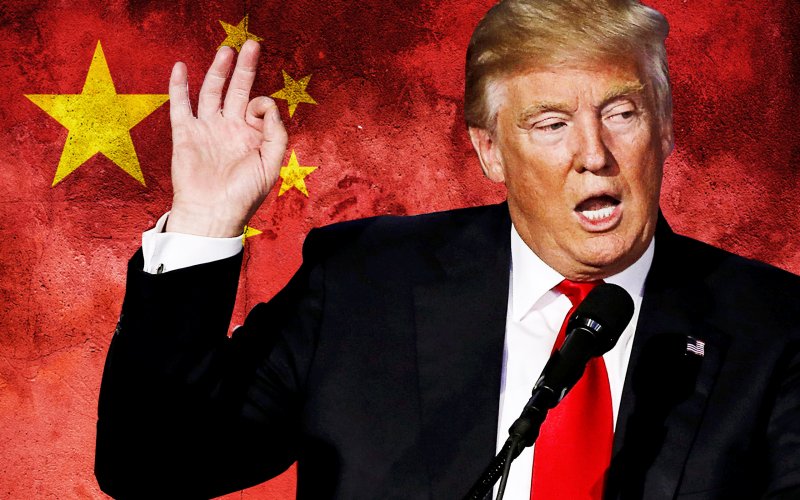
On December 13, Donald Trump nominated ExxonMobil CEO Rex Tillerson for Secretary of State. Tillerson’s nomination raised questions on whether the top executive of one of the world’s largest corporations (5th largest by market cap, to be exact) can put the American national interest above business interests. Questions of incompatibility aside, what weighs even heavier are the accusations of Tillerson’s connections to Russian President Vladimir Putin.
Trump’s pick is the most recent of many controversial choices for top jobs in his administration. The President-elect’s inner circle has long been accused of harboring pro-Putin and pro-Russian attitudes reflected in their cabinet picks and associates.
For example, former Trump campaign manager Paul Manafort has been investigated by the FBI over connections to a high-ranking pro-Russian politician in Ukraine, from whom he allegedly received a $12.7 million cash payment. Future Trump national security advisor General Michael Flynn attended a dinner in Moscow in 2015 and was seated at Putin’s table, while long-time Trump supporter Roger Stone admitted to having had “back channel” communication with Wikileaks head Julian Assange.
Stone boasted on Twitter that Hillary campaign chairman John Podesta would have some “time in the barrel,” and Podesta’s emails were hacked by Russian groups and then posted on Wikileaks. Trump himself has on multiple occasions showered Putin with praise, a favor that was reciprocated by the Russian President.
At the same time Trump is cozying up to Russia, he is taking an increasingly rougher tone with China. As he has made abundantly clear while on the campaign trail, he considers China a serious—if not the most serious—threat to the United States.
First and foremost, he identified China as an economic threat, bent on undermining America’s global economic pre-eminence by inventing the concept of global warming in order to reduce the competitiveness of U.S. manufacturing. He also repeatedly blasted China for “taking our jobs” and accused the Middle Kingdom of “illegal dumping.” Add to that the fact that Trump reversed in early December decades of established U.S. policy towards China by accepting a congratulatory call from Taiwanese leader Tsai Ing-wen. After the call, he openly called into question America’s adherence to China’s “One China” policy.
If Trump advisors are indeed right, and the phone call with Taiwan was long planned, then the President-elect’s reasoning behind staffing the White House with pro-Russian hacks becomes quite clear: breaking apart the budding Moscow-Beijing alliance.
Seen in this light, aligning with Russia is not an expression of subservience to Vladimir Putin, but instead a strategic calculus of the Trump administration meant to contain China. Due to geographical proximity and historical animosity, Russia and China are acutely aware of the threat they pose to each other. In Trump’s view, faced with a revisionist Beijing, Moscow and Washington are natural allies.
China has always been suspicious of Russia’s intentions, because Moscow remains firmly anchored in the West. In the words of a Chinese academic, “If the next U.S. president shows more respect to Russia and is less tough toward Moscow, the Kremlin’s ‘turn to the East’ will very likely swing to the West.”
It seems that time has come. While Trump has indicated that he is hoping for more engagement against China from regional allies, especially Japan, some of America’s allies no longer seem to be inclined to follow Washington’s lead. When the Australian government declined to comment on Trump’s overtures to Taiwan, citing “national interest” as justification, eyebrows were raised in astonishment. But when looking at the economic data it makes sense: Australia is the “developed world’s most-China dependent economy”, owing much of its 25 years of uninterrupted economic growth to Beijing’s booming demand for commodities.
This helps to explain a string of pro-Chinese decisions taken by Malcolm Turnbull, from agreeing to a 99-year Chinese lease of parts of the Port of Darwin to rejecting a $40 billion Japanese bid to build Australia’s new submarine fleet. With China being the most important trading partner for Australia, it appears that Beijing has made its influence in Australia stick. For incoming Secretary of State Rex Tillerson, China’s growing clout in Australia and across the Asia-Pacific will make strengthening U.S. alliances with trusted allies like Japan a priority.
For both the U.S. and Russia, strategic alignment is a way to keep the looming China threat in check. While Trump will likely disengage from Europe, he is likely to continue to focus on the Asia-Pacific and China’s containment. Thus, the strategic encirclement that China suspected the U.S. would pursue under Obama’s pivot to Asia will continue, albeit in an altered form – not primarily via the control of Pacific island chains by the U.S. and its allies, but through Beijing’s immediate neighbor, Russia.
However, the degree to which this new partnership with the Kremlin will work out remains to be seen. America’s new alliance comes with many unknowns. Whether Putin can really be regarded a trustworthy ally is debatable, and whether Chinese President Xi Jinping will sit quietly through provocations amid a new serious strategic challenge may be called into doubt as well. Playing the “Russia card” against China the same way Nixon erstwhile played the “China card” against the Soviet Union remains a high-stakes gamble.